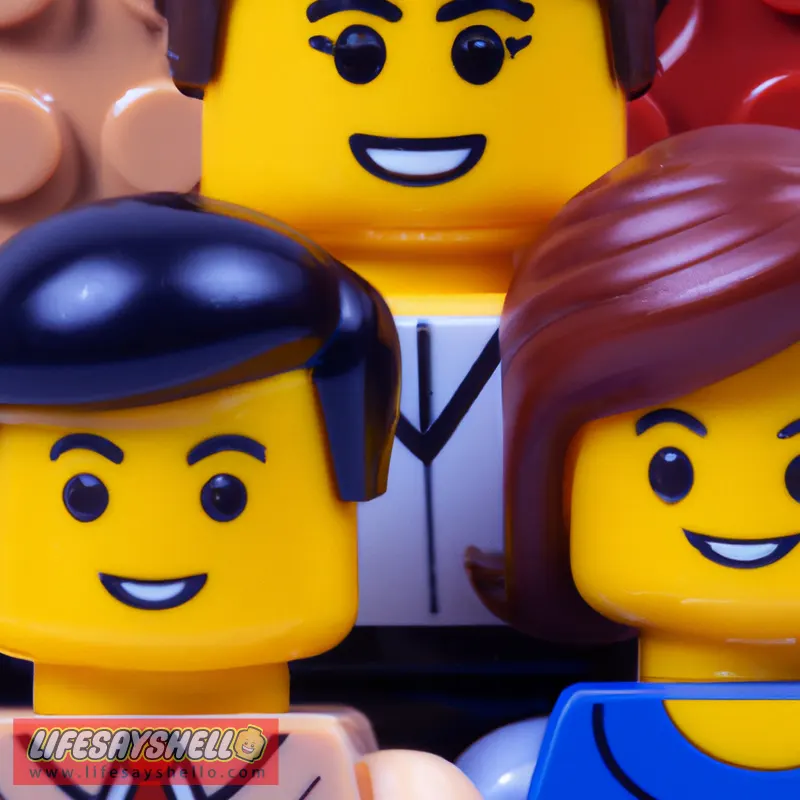The Vital Importance of Human Rights in Society

Human rights are essential for creating a just, equitable, and dignified society. They ensure that everyone can live a life worthy of a human being, with access to basic necessities and protections from abuse and discrimination. In this article, we'll explore the key reasons why human rights matter so much.
Ensuring Basic Needs are Met
One of the most fundamental purposes of human rights is to make sure basic needs are met for all people. The Universal Declaration of Human Rights states that everyone has the right to food, clothing, housing and medical care. When these basic requirements for life are guaranteed as human rights, it establishes a minimum baseline of dignity for all human beings.
No one should have to suffer from starvation or exposure because they lack access to adequate food, water, shelter and healthcare. By enshrining these provisions as basic human rights, we create a social contract and obligation to ensure no one falls below this basic level. It empowers people to demand these minimum standards be met.
Food, water, shelter and medicine might seem like obvious necessities. But we only have to look at extreme poverty around the world to see how many people still lack reliable access to even these basic things. More than 700 million people live in extreme poverty, surviving on less than $1.90 per day. The human right to an adequate standard of living compels us to take action to lift more people out of such dire conditions.
When people are freed from the daily struggle to meet their physiological needs, they gain the opportunity to pursue higher goals like education, political participation, and creative expression. Human rights help create the basic conditions in which human potential can thrive.
Protecting the Most Vulnerable
Another key purpose of human rights is to protect the most vulnerable groups in society from abuse, discrimination, and other injustices. These groups include women, children, minorities, indigenous peoples, the poor, the disabled, the elderly, prisoners, refugees, migrant workers, and the LGBT community.
The Universal Declaration of Human Rights was born out of the horrors of World War II and the Holocaust. The world witnessed the terrible violations that can occur when authoritarian regimes are allowed to target minorities and other vulnerable populations. Human rights principles arose as an international commitment to prevent such atrocities from ever happening again.
These groups are most likely to have their rights violated because they lack political and economic power. For example, women in many countries still lack equal rights under the law. Children are often exploited as laborers because they cannot defend themselves. Marginalized ethnic groups face discrimination, even violence, if the state does not protect their safety and opportunities.
Human rights legislation is meant to act as a strong counterbalance to these dangers. It emphasizes protecting the powerless, not just the powerful. When the dignity and equality of these vulnerable groups is made a legal priority, it provides them with greater security and helps balance out social disparities of power and privilege.
Promoting Values of Equality, Tolerance and Inclusion
Human rights promote important moral values that help strengthen social bonds and stability. Values like equality, tolerance, respect, fairness, dignity, acceptance, and inclusion. By making these values legally binding in the form of rights, it elevates their status as shared priorities in that society.
Embedding these types of inclusive values into law and policy helps reduce social divisions and friction. It cultivates a climate of mutual understanding where people see each other as fellow citizens deserving of equal treatment, rather than outsiders. Upholding human rights is an important part of creating the kind of society we want to live in - one that reflects principles of social justice.
South Africa's post-apartheid constitution is a powerful example of using human rights to heal social divisions through inclusive moral principles. The constitution's Bill of Rights emphasizes dignity, equality and freedom for all - a radical transformation from the oppressive apartheid era. By enshrining these values, the constitution helped build a new national identity based on human rights.
Empowering Individuals to Claim Their Rights
Human rights also empower individuals by making them aware of the rights and protections they are entitled to. Knowing your rights is an important step in being able to demand them or seek justice when they are violated.
The UN Office of High Commissioner for Human Rights explains that human rights education informs people about:
- The content and meaning of human rights principles
- Mechanisms for protecting rights
- Ways to promote rights in the community
Equipped with this knowledge, individuals can advocate for their own rights locally. They can also file complaints to international bodies like the UN Human Rights Council or the International Criminal Court if domestic remedies fail. While enforcing human rights is still an ongoing struggle, education is crucial for holding institutions accountable to these universal standards.
For example, human rights education played a key role in how women in Morocco succeeded in reforming discriminatory family laws in 2004. By learning about their rights and how to organize collectively, women's human rights defenders were able to mount an effective campaign to change policy based on principles of equality and non-discrimination.
Protecting Human Dignity
Human rights are deeply connected to human dignity - the idea that all people have innate worth and should have their basic needs met in order to live and develop freely. Human dignity is the philosophical foundation underlying the entire human rights system.
The first article of the Universal Declaration of Human Rights states: "All human beings are born free and equal in dignity and rights." This affirms the intrinsic worth and equality of every person, regardless of any social divisions. All people deserve to have their dignity respected.
When human dignity is made a legal obligation through human rights laws, it establishes objective standards of how individuals and the state must treat people. Certain acts are identified as violations of human dignity, like torture, slavery, discrimination and arbitrary detention. Upholding human rights helps create conditions where all can live in dignity.
Respecting human dignity also means recognizing that people have diverse values, beliefs, abilities and goals. What is dignified treatment for one person may not be for another. However, human rights provide a moral foundation of values like equality, freedom and justice that allows people to pursue their vision of a life worthy of human dignity.
A world that fulfills human rights is one that recognizes human diversity while ensuring everyone can meet their basic needs, develop their potential and live free from abuse and exclusion.
Preventing Abuse and Neglect
The final key function of human rights is to prevent abuse, neglect, exploitation and other maltreatment, especially by those in power. Human rights place legal limits on what governments, institutions and individuals can do in their treatment of others.
Certain groups are at heightened risk for human rights abuses because of stigma and lack of political power. For example:
- Elderly people may face neglect in nursing homes
- People with disabilities are vulnerable to discrimination in employment
- Prisoners are subject to physical and psychological abuse
- Minority groups face hate crimes and police brutality
Human rights laws establish standards of prevention and protection against these types of abuses. They empower oversight bodies to investigate rights violations. And they allow individuals to seek justice when wronged, through court systems and international institutions like the International Criminal Court.
While enforcement remains challenging, human rights provide an avenue of recourse for people facing abusive situations. Especially when other social or political systems fail to protect them. The principles of human rights give power and legal standing to the vulnerable so their mistreatment cannot be ignored.
The Ongoing Struggle to Uphold Human Rights
While human rights ideals have expanded around the globe since the 1948 Universal Declaration, the struggle to fully implement human rights continues. Millions still suffer from poverty, discrimination, conflict and oppression. New threats like climate change and terrorism also challenge human rights.
However, the human rights framework gives us standards to aspire to and tools to hold societies accountable. Through a combination of grassroots activism, education, legal reforms, and international cooperation, we can get closer to a world where these fundamental freedoms and protections are guaranteed to all. Upholding human rights requires an ongoing commitment from people and nations worldwide.
The reasons why human rights matter - ensuring basic needs, protecting the vulnerable, promoting shared values, empowering individuals, respecting dignity, and preventing abuse - are as relevant as ever in these turbulent times. We all have a responsibility to understand human rights and help move society closer to fulfilling these universal ideals.
Human rights represent our best hope for creating a just world where all can thrive in freedom, dignity and equality. While progress takes time, if we keep advocating for human rights, raising awareness, and pushing institutions to uphold them, we can build that better world. There are always more steps to take, but the struggle is worth it.




Comments